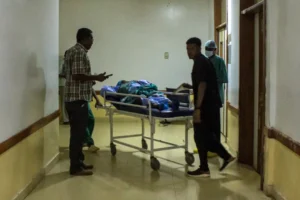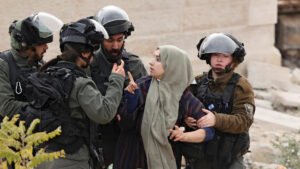Building Good Governance and Counterterrorism Capacity in the Far North Region of Cameroon
|
Building Good Governance and Counter-terrorism Capacity in the Far North Region of Cameroon
|
|
YAOUNDE, Cameroon
May 16, 2018 Minister of State, Minister of Justice, Keeper of the Seals, (Mr Laurent ESSO) Distinguished guests, Ladies and gentlemen, It is a pleasure to join you for the launch of this important initiative which proceeds from the shared belief that good governance and the rule of law are the foundation of the fight against terrorism. This assembled group understands the link between civil liberties and security. We are grateful to David Abouem a Tchoyi and Stephen White, the two gentlemen who will be leading the training orientation for this program. Their rich experience in security sector reform and good governance will serve as important guides. Over the next four days, you will be working together towards a common goal – to equip your colleagues in regions most affected by conflict with the knowledge and skills recognized as international best practices in countering terrorism. The U.S. government is proud to support this initiative; it is funded through the State Department’s Bureau of Counterterrorism. It is a two-year project, begun in 2017 and running through October 2019. The initiative will support ongoing efforts to develop Cameroon’s institutional capacity to train civilian government officials and law enforcement to meet the needs of communities vulnerable to terrorism and conflict. Today, more countries than ever before have been impacted by the various manifestations of terrorism. Countering this threat is a global effort requiring sustained commitment from us all – this includes the international, regional (in this case, the Lake Chad Basin Region), national, and sub-national leaders. Effective counterterrorism measures and the protection of human rights and the rule of law are complementary and mutually reinforcing goals best achieved through a whole-of-society effort. This initiative focuses on the Far North Region, where Boko Haram has exacted a heavy toll on the ethnically diverse and economically challenged border communities. As we all know, the region has long suffered from a multitude of development deficits. Nearly three quarters of the population lives below the poverty line, double the national average. The region is home to hundreds of thousands of internally displaced persons and refugees from neighboring countries. National, regional, and local authorities, security forces, and communities remain locked in a bitter struggle against the group. Despite these challenges, Cameroon and its neighbors are steadily making military gains with the assistance of the Multinational Joint Task Force – and with help from the United States, which advises and assists Cameroonian forces, trains its forces, and provides intelligence, surveillance, and reconnaissance support. Just last week, we were proud to hand over two U.S.-built Cessna aircraft. France, and the United Kingdom are doing their parts as well, as is the World Bank, and the European Union, and others. You are not alone. The rule of law based on a sense of fairness is a necessary condition if we want to address community concerns, build social resilience, and reduce underlying drivers of violence. This is the very foundation of peace and security. This foundation is built on respect for human rights, good governance, access to justice, transparency, and the rule of law. Upholding this foundation requires a community of actors working in tandem toward a common goal. The challenges are many. For magistrates, cases relating to terrorism pose legal and procedural questions:
And how can the defendant’s right to the presumption of innocence be guaranteed when stigma is so burdensome for those merely accused – let alone convicted – of association with Boko Haram? For administrators, the goal is to fulfill the obligations of civilian-led efforts to sustain and advance gains made over the last years.
We hope this initiative will help lead to the development of best practices for administration, governance, and protection of human rights in terrorism-affected communities. ENAM has a sterling reputation and a storied history of training judges and administrators: that’s why we chose this institution. Together with ENAM, we will help lessen instances of radicalization caused by a sense of injustice and discrimination. We look forward to deepening our engagement. We look forward to a day when the peoples of the Lake Chad Basin Region can live together in peace and harmony, without fear. Thank you. Distributed by APO Group
|





